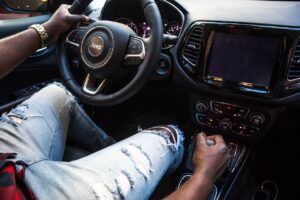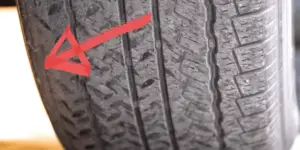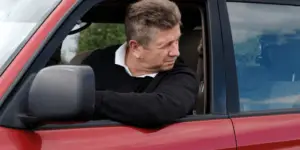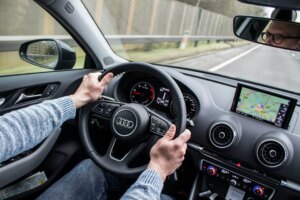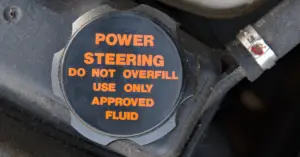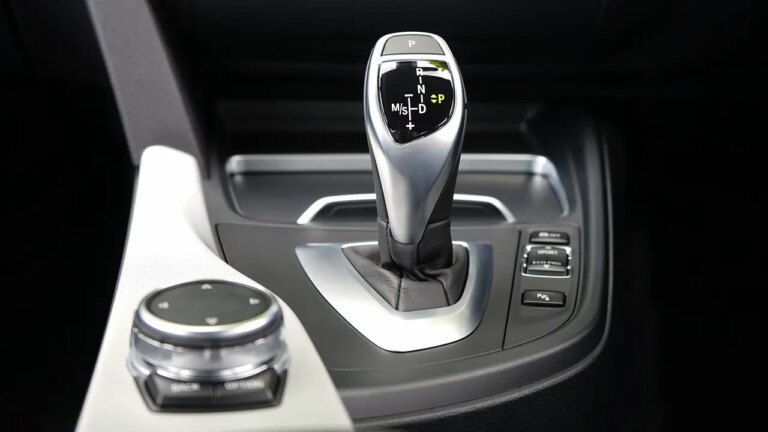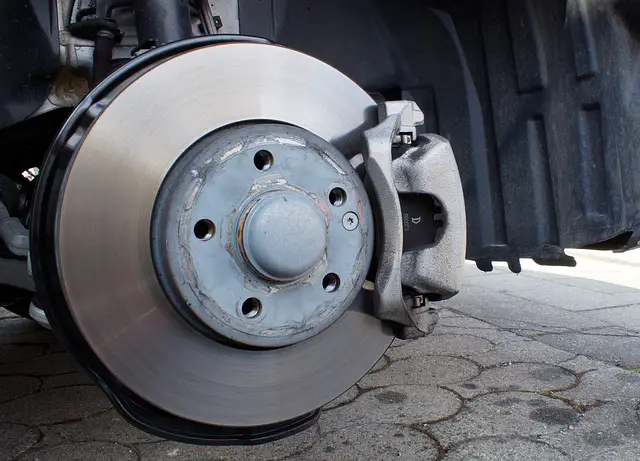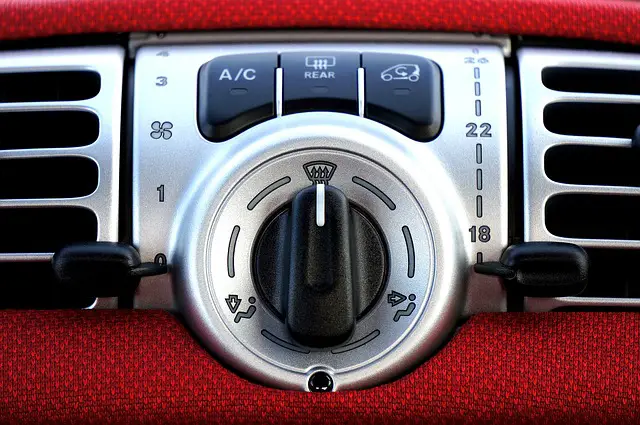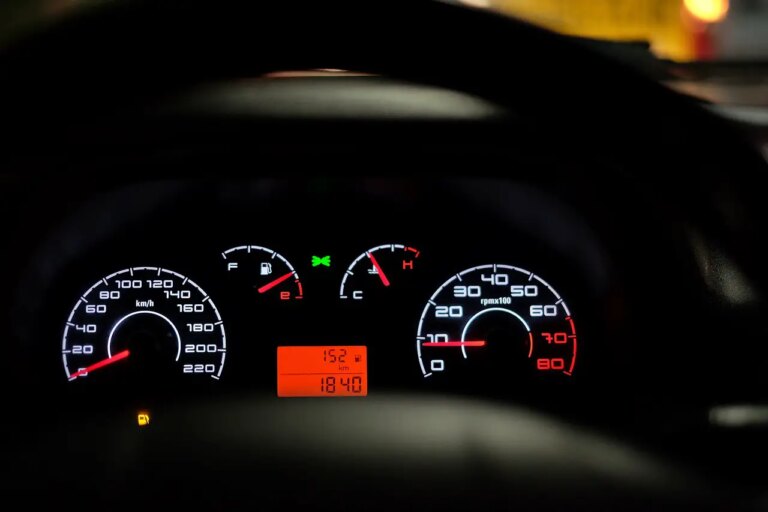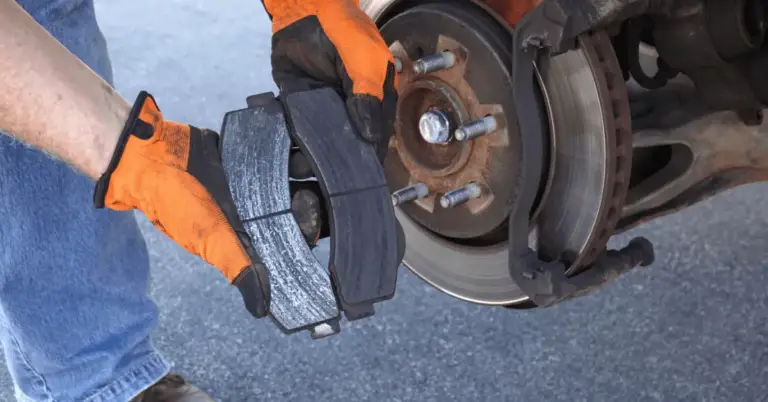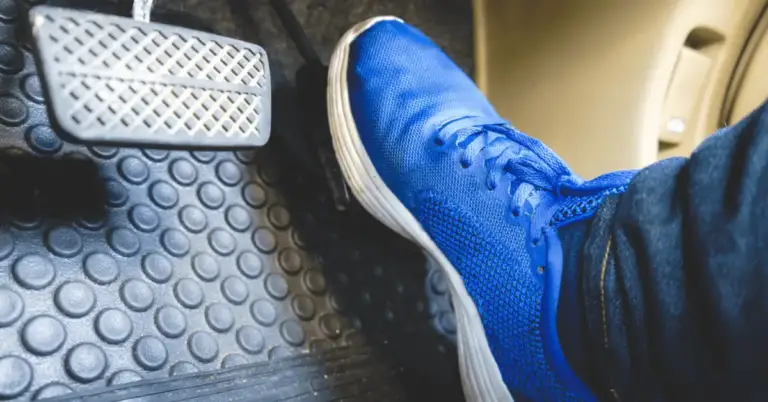Although we spend most of our time driving forward, we still want our cars to be safe and roadworthy when backing up too.
Occasionally you’ll hear noises when you reverse only, often when you’re reversing and turning at the same time – out of a drive or parking space at the mall, for instance.
Here we’ll look at the different noises you may hear when reversing and turning the steering wheel, along with if they indicate a major problem and if a repair is needed.
Squealing Noise
This is the most common noise you’ll hear. It’s almost always a tire-related noise.
Your tires are probably directional – most newer ones are – which means they are designed to travel only in one direction. If you look at them, you’ll see an arrow pointing the way they should be facing.
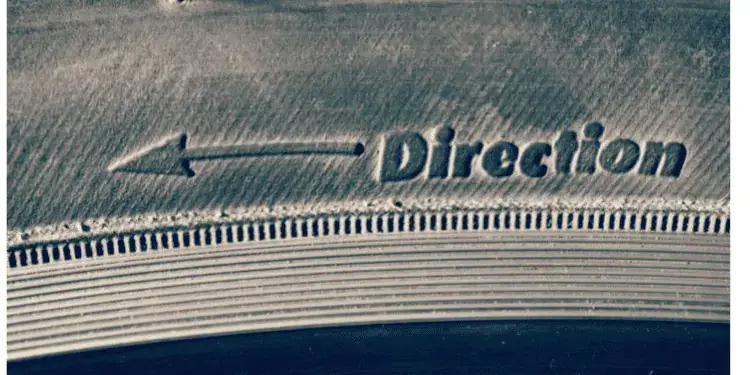
When you turn and reverse at the same time, you are going against the grain of the tire, and they may squeal in protest.
The tire noise is more likely from the front tires than the rear, as the front ones are turning tires. This is absolutely nothing to worry about
Popular related article with other visitors: Loud Tire Noise – Causes, Fixes, and Dangers
Rubbing Noise
When you reverse, you often have to use a full lock to get your car where it needs to be on the road—more than when moving forward.
If your car has wide wheels or a lowered suspension, it’s worth checking the inside of the tire for any signs of rubbing. Any aftermarket alteration to the wheels or suspension can manifest more when reversing. The tires often come into contact with a mud flap or another trim piece.
Knocking Noise
Both the first two noises were easy to troubleshoot. A knocking noise when reversing could be a sign of a serious problem.
Your car’s differential produces different amounts of power for each wheel when you’re turning. Without a differential, your car would struggle to turn at all. The gears inside a differential need to work in exact synchronization.
When they don’t, they’ll knock into each other and create the noise you may be hearing.
When you drive forward, different gears within the diff are engaged, and the sound will disappear.
Clicking Noise
This noise indicates a failing CV joint. These joints help ensure power gets to all the drive wheels smoothly.
Is your car all-wheel drive, or front or back?
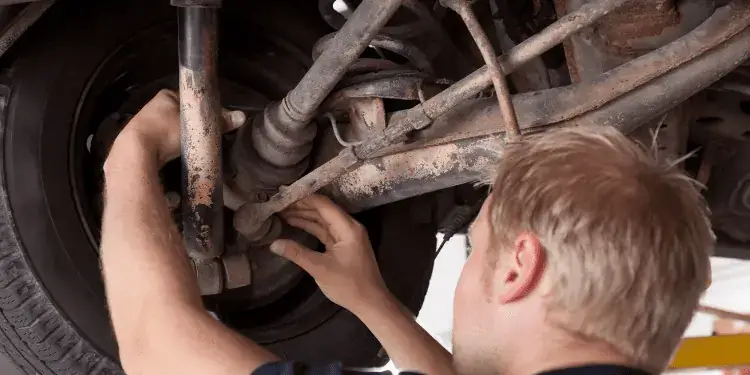
This is important because if you hear a click from the rear when turning and reversing, but your car is a front-wheel drive, it can’t be CV joints as there are none at the rear.
This is unlikely the case, though, as no other part makes a clicking noise when it fails. It is likely to be CV joint-related.
When CV joints fail, they won’t always wear uniformly, and that’s why sometimes the clicking noise won’t happen when driving forward but will when backing up.
Grinding Noise
You may have a bent strut. Have you driven over a pothole or a dead animal recently? Even if you haven’t, they can be bent even when the car is brand new and out of the factory.
Even a straight strut can cause grinding noises. Rubber bushings that cushion the struts perish and lose their flexibility as they age. When they do, it allows the piston to rattle and bang, especially when reversing and turning out of a drive onto the road lower than your drive is.
Many visitors also read this article: Do You Have a Grinding Noise From A Rear Wheel When Driving? [SOLVED]
Screeching Noise
A screeching noise is common, especially when you’re reversing on cold mornings.
Parking Brake
Your car’s parking brake uses the rear pads and rotors to keep your car stationary. Although it is on a different circuit from the foot pedal, it still uses the rear wheels’ caliper, rotor, and pads.
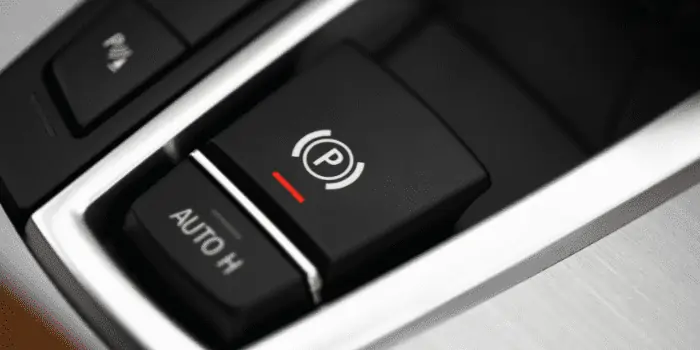
The caliper doesn’t always release completely on either or both rear wheels when cold. A slight turn left, or right can make the pad contact the rotor briefly before the gap between them is restored as you straighten up.
Power Steering Pump and Fluid
The second reason could be low power steering fluid or the power steering pump going bad.
You may ask why you wouldn’t hear this noise when driving and turning in forward gear.
Its noise isn’t connected to your direction of travel. It is the time of day and whether the car is warm.
Most people perform a backing-up maneuver to get their car out of the drive in the morning. This is when the car is at its coldest.
This will mean the power steering fluid is at its thickest, and the power steering pump may not work as efficiently as the alternator is powering other components like climate control and charging the battery.
Once the car is driving forward, it may not have to turn as sharply until the power steering fluid, and pump are warmed up. Hence, there will be no noise traveling this way.
Notable Mentions
Car noises can be difficult to diagnose. A change in the position of a mm between two parts can make the difference between a loud noise and no noise.
We’ve covered all the reasons why your car makes certain noises when reversing and turning, but here we’ll finish with some reasons that would usually show themselves when driving and turning too.
A slight change in angle can make a noise happen in reverse but not going forward.
Wheel Bearings Grinding
Wheel bearings create a grinding noise when they fail. Their job is to ensure the smooth running of the wheel against the assembly, but over time they wear as the grease they are encased in dries out. It is possible – but unlikely they are grinding when you reverse and turn only.
Just in case, raise your car slightly and rock the wheel back and forward. It should be solid. Any play indicates that the bearings are bad. Also, spin the wheel backward and forwards. Maybe the bearings are making a noise when you only spin them backward. Extremely rare, though.
Moisture on Brake Rotors Squealing
On cold mornings moisture can pool on certain areas of your car’s brake rotors.
Is it possible that as you reverse out of your drive and hit the brakes before straightening up, that’s when you hear a noise? It’s likely that you still have the wheels fully locked left or right when you do that?
If so, a squealing noise could be the pad bouncing off the wet rotors.
Once you move forward, the rotors will soon dry off, and the noise will disappear.
In reality, it’s not the reversing and turning that was causing the noise but that reversing was the first maneuver you performed when the rotors were wet.
In conclusion
Car noise when reversing and turning is likely to be tire, power steering, or suspension-related. A tire will likely cause a squealing noise, a power steering fault a screeching noise, and suspension a clicking noise. All faults should be repaired as they will get worse if not fixed.


